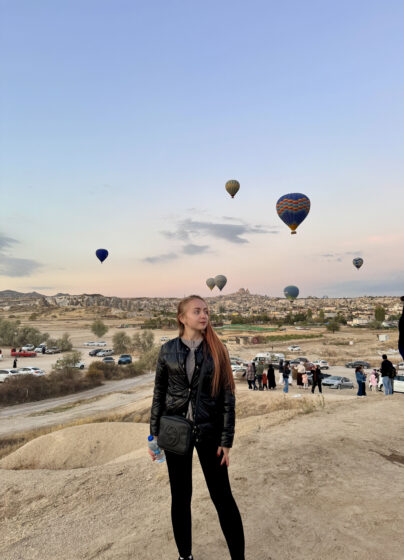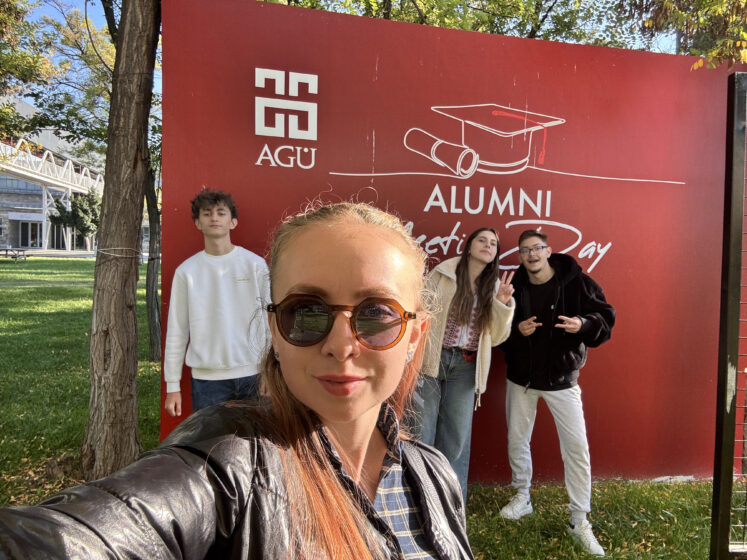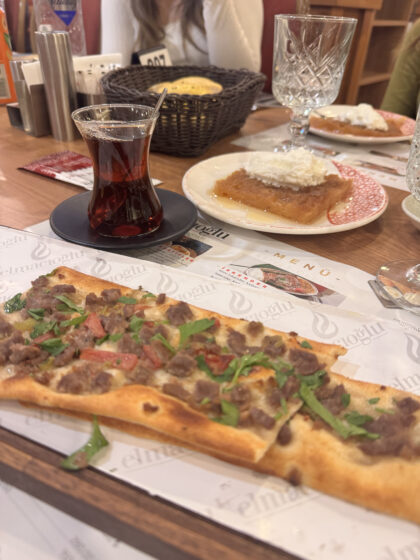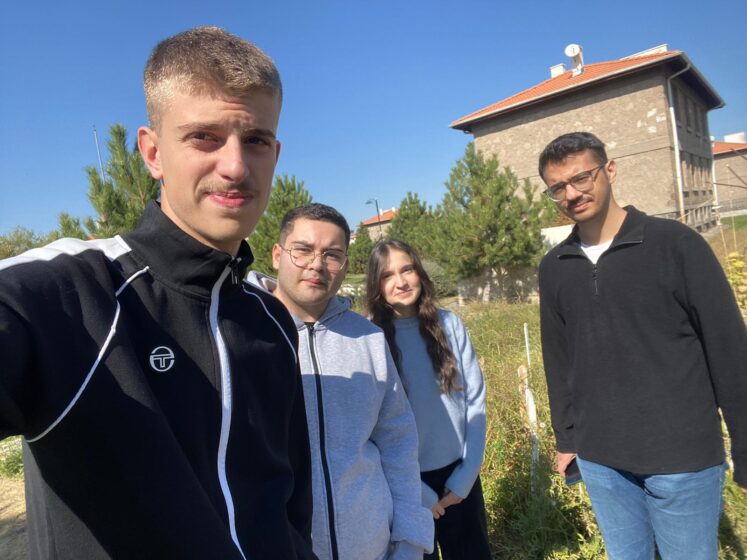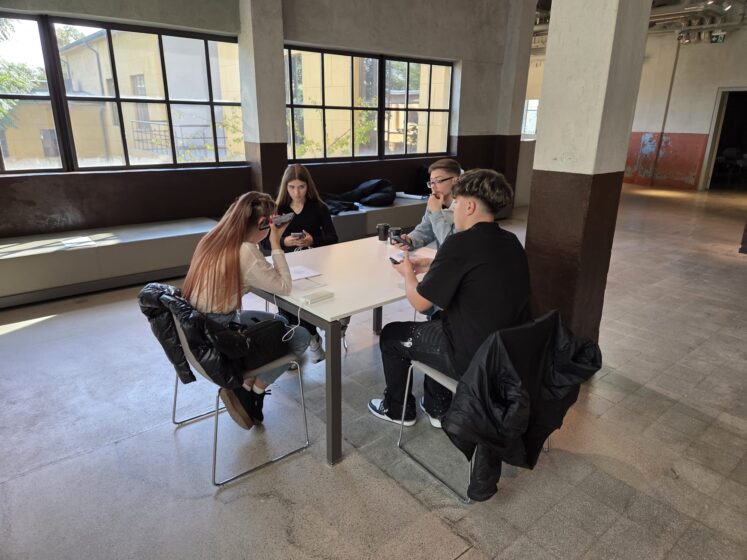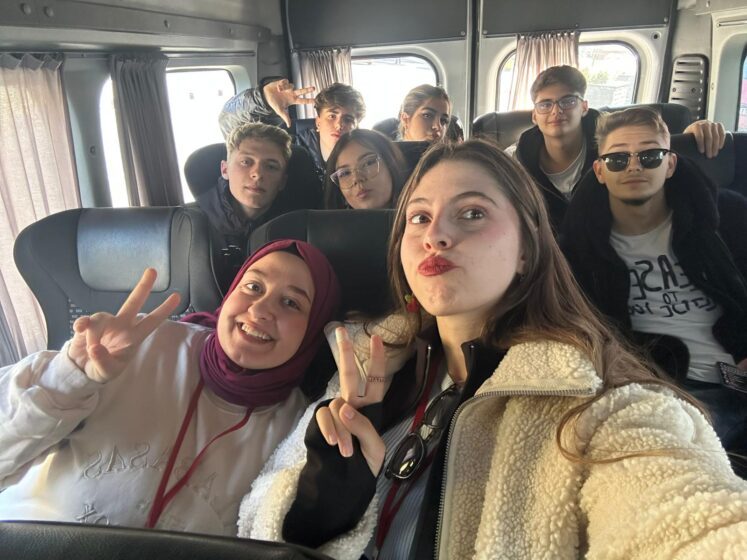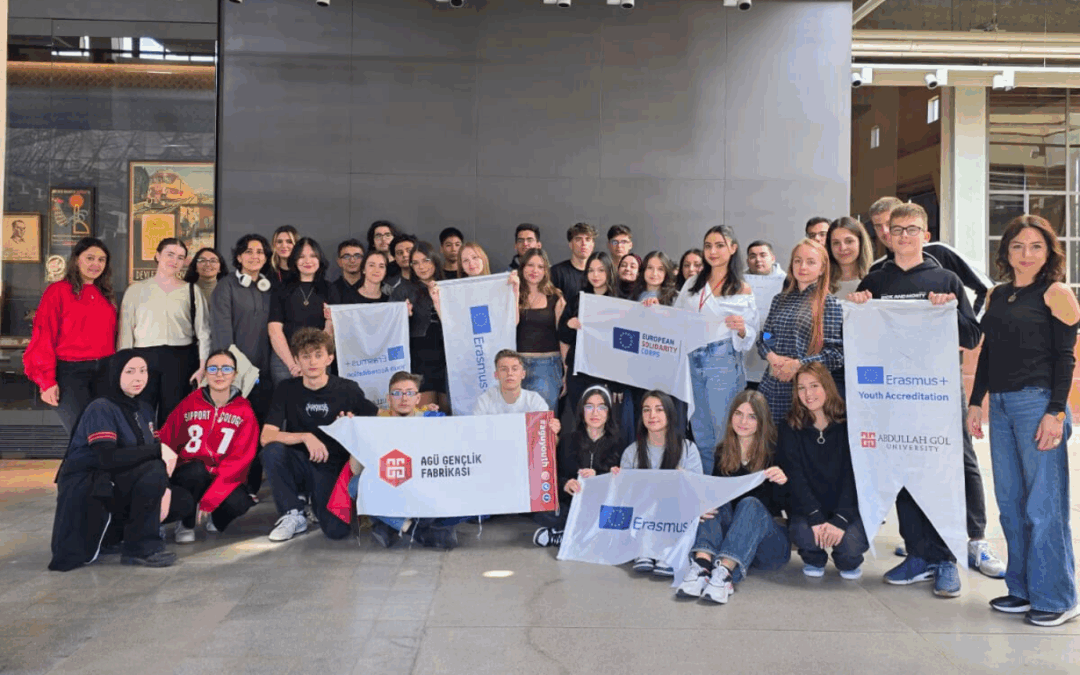Eight thousand kilometers.
Four countries.
Ten days.
One goal.
From October 13 to 22, 2025, twenty young people from North Macedonia, Turkey, Romania, and Spain gathered in Kayseri, Turkey to discuss environmental issues and to find real ways to address them. It was an Erasmus+ youth exchange dedicated to one of the most urgent topics of our time: environmental protection and sustainable development.
The very setting of the project became a metaphor for transformation. Abdullah Gül University, ranked among the world’s top 900 and Turkey’s top 10 universities, is located in a former industrial factory. Where machines once roared and chimneys smoked, innovative projects now take shape and ideas about a greener future are born. The building’s architecture reminds you of the past, but everything happening inside belongs to the future.
The university follows a new educational model. Students come from all over the world, including African countries. You hear dozens of languages in the corridors, and in the cafeteria you can easily end up at a table with people from five continents. It was in this environment that our journey began.
On campus operates the Youth Factory – a center for youth initiatives and non-formal education. It coordinates Erasmus+ projects and European Solidarity Corps programs. Symbolically, a former factory that once produced goods now produces ideas and social change.
When learning becomes dialogue
The first day broke every stereotype of what education should look like. No monotonous lectures, no endless presentations. Instead – group discussions, interactive sessions, and exchanges of experience among participants from four countries.
Each country brought its own perspective on environmental challenges. Romanian participants spoke about waste management issues in their region, Macedonians shared examples of local initiatives, Turkish participants presented university-led environmental programs, and our Spanish team analyzed sustainable development approaches along the Mediterranean coast.
The program revolved around key concepts of modern environmental policy:
- European Green Deal
- Sustainable Development Goals
- European Youth Goals
But these weren’t abstract textbook terms. We explored practical mechanisms of implementation, identified weak points, and proposed our own solutions.
One of the most valuable moments was a historical overview of the environmental movement’s evolution – from early grassroots initiatives to the EU’s modern Green Deal. It helped us see that today’s strategies are the result of decades of trial, error, and countless small victories by activists around the world.
One of my most memorable experiences was giving a talk to university students about the opportunities offered by the European Solidarity Corps. I spoke about how volunteering opens doors not only to travel, but to developing skills you can’t learn in a classroom – and how international projects change your perspective and shape civic awareness. The audience’s response showed that this message truly resonated with young people.
Project coordinator Bora embodied the balance between formal and non-formal education. He lectures at the university by day and leads youth exchanges by night. His approach reinforced the idea that academic knowledge and hands-on experience should complement each other, not exist separately.
A Cappadocian sunrise that changed everything
The educational part alternated with deep cultural immersion. We tried Turkish cuisine, learned local traditions, and shared aspects of our own cultures. Each evening felt like a small festival filled with songs and stories from four countries. And then – something truly magical happened.
The highlight of the project was our trip to Cappadocia. Even now, writing these lines, I still get goosebumps. Imagine this: we greeted the sunrise among the region’s surreal rock formations, a UNESCO World Heritage Site. These landscapes, shaped over thousands of years, came alive as dozens of hot-air balloons slowly rose into the colorful morning sky.
At that moment, all our environmental discussions suddenly became tangible. They were no longer abstract sustainability goals from EU documents – they were about real beauty that must be protected, about spaces that existed long before us and must remain long after.
We explored ancient cave cities carved into the rocks centuries ago, walked trails where nature revealed both its strength and fragility. Every stone and cliff seemed to whisper a reminder of how precious the things we take for granted truly are.
Together we designed local initiatives, exchanged contacts of environmental organizations, and built networks for future collaboration.
What comes next – a full stop or an ellipsis?
Every participant showed genuine engagement, curiosity, and readiness to act. It was a community united by one shared value – care for the planet. At the end, we all became a little more like Greta Thunberg – and received Youthpass certificates confirming the competences we gained through non-formal learning. But more important than any document were the connections, the experiences, and the understanding that change is possible when people from different countries work together.
Each of us arrived in Kayseri with our own ideas about ecology, education, and cooperation. We left transformed – with broader perspectives, new contacts across four countries, and concrete plans for action.
Erasmus+ offers something that traditional education can’t: the chance to learn through real interaction, through the meeting of perspectives, through immersion in another culture. Abdullah Gül University – once a factory – became a space where ideas took shape, theory met practice, and knowledge turned into action.
What comes next? The project is over, but its impact keeps unfolding. Because true education doesn’t end on the final day of a program – it continues in every action, every decision, and every choice we make when we return home.

